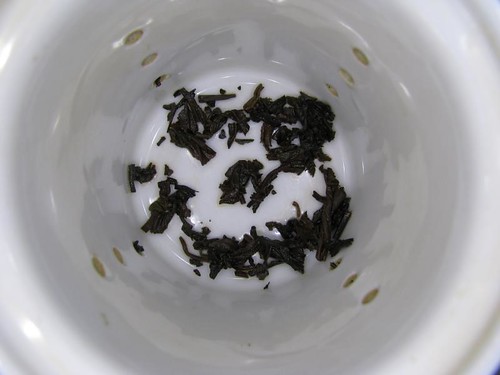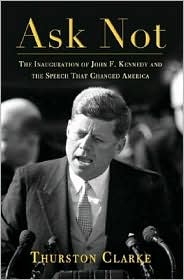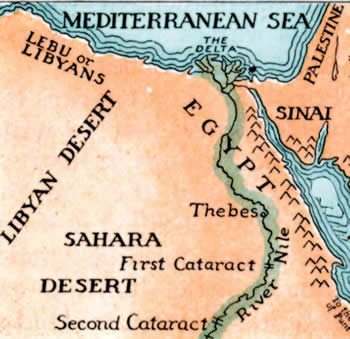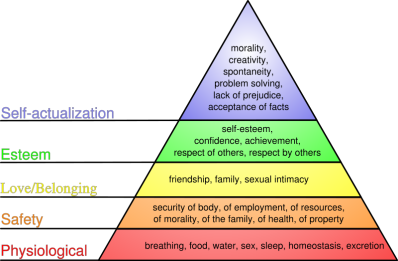
The problem right now is that it is hard to see where that demand might come from.



 .
. .
.Nov. 26 (Bloomberg) -- Sales by U.S. electronics makers in Malaysia will fall this year and next as a global recession saps demand for Dell Inc. computers and other devices, the head of an industry group said.
“We are monitoring growth in the fourth quarter very closely and the first half of next year when probably, the full effects of the crisis taking place in the developed countries will have an effect on the emerging economies,” she said.
 .
.Zeti said the central bank would review the conditions and make assessments, moving forward. “We have the flexibility to undertake further measures,” she said.
As I said, it's oracular, suitably nebulous.- Kim and Mauborgne, Blue Ocean Strategy, pg. 190
You must be the change you wish to see in the world.
- Mahathma Gandhi
 Leaders are fond of discussing management concepts and theories of social change and next, apply them to political paradigms.
Leaders are fond of discussing management concepts and theories of social change and next, apply them to political paradigms.
They do this within the framework of Structural-Functionalism in which society is seen as a stable entity such as in the case of ‘power transfers’ and the ‘transitions of hegemony’.
Oftentimes political leaders and their opinion leaders, technocrats, intelligentsia, speech-writers, perception managers, and other members of the regime will embrace new ideas to help fine-tune the political economic structure of the old regime and help sustain the base and superstructure of the power arrangements.
These days, a popular concept of change in Malaysia and Asia perhaps is the blue ocean strategy in which the idea of cooperation takes over competition, and that novel opportunities are to be created to contribute to an environment in a future that promises more peaceful coexistence between producers and consumers, and providers and clients.
This idea is taken from the work of W. Chan Kim and Renee Mauborgne, Blue Ocean Strategy: How to Create Uncontested Market Space and Make the Competition Irrelevant, published in 2006 by The Harvard Business School Press.
 In a yet to be charted territory of the blue ocean, competition is said to be irrelevant.
In a yet to be charted territory of the blue ocean, competition is said to be irrelevant.
Innovative companies thrive without having to compete for saturated markets. ‘Red oceans’ of chaos and competition is abandoned for ‘blue oceans’ of conflict resolution and collaboration, as this new idea goes.
Again, limited findings from the study of a few business entities is used as a model to be applied to public service.
Is Malaysia a blue ocean?
To answer this one must consider what state she is currently in.
Malaysia is wading through the (dark and dismal) River Styx in which her McCarthyism is keeping dissenting voices in jail, hunting down students and faculty, arresting peaceful protesters, battling with new media, making its politics of race and religion is evolve into a Balkan and a Bosnia.
 The postmodern condition of this open sky neo-capitalistic country is debilitating and its citizen are in utter confusion of where the national leaders are bringing them to, at time when the central and ethnic-based leadership is rotting to its core, creating a hideous form of a human being infected with a Human Papilliomavirus.
The postmodern condition of this open sky neo-capitalistic country is debilitating and its citizen are in utter confusion of where the national leaders are bringing them to, at time when the central and ethnic-based leadership is rotting to its core, creating a hideous form of a human being infected with a Human Papilliomavirus.
Especially at the time of the December party elections the level of corruption within the ruling parties is at a critical stage that even those vying for top leadership have admitted that one needs many millions of ringgit to get elected.
This is happening at a time when the poor of all races are struggling to survive by the day, maintaining a roof over their head, and making sure that their children have food on the table.
Malaysians are in a bipolar condition in a unipolar form of governance in which there is the belief that only race-based politics is the one best system.
Dissenting views are to be crushed and destroyed by any means necessary, and the hegemony of the previous regime need to be maintained either through force or false consciousness inflicted upon the masses.
The red ocean of Malaysian politics
Malaysians are charting into an unknown territory brought about by the yellow wave of the recent March 8 revolution and the red Makkal Sakthi cries of repression, anger, and frustration.
There is also the ever ‘green’ ideology of Islamic-based parties and the light blue radical multiculturalism of PKR adding to the Kandinsky and Jackson-Pollock type-of political landscape painting of this country's future.
 There is chaos and complexity in the pattern of political scenario, unlike the ‘blue ocean’ strategy feel-good ideology embraced by Barisan Nasional leaders who probably have not done an internal and external reading an critical analysis of what actually blue ocean strategy means in which the country is now trying to choose between depression and the deep blue sea.
There is chaos and complexity in the pattern of political scenario, unlike the ‘blue ocean’ strategy feel-good ideology embraced by Barisan Nasional leaders who probably have not done an internal and external reading an critical analysis of what actually blue ocean strategy means in which the country is now trying to choose between depression and the deep blue sea.
In short, Malaysia is in a bloody red ocean that has been plagued with cut-throat shark-eat-shark world of racial politics.
In all these, Malaysians are in need of a leader that will not only embrace all these colors of change and turn them into a ‘rainbow coalition’.
Use that as a symbol to navigate through the blue ocean to arrive at a destiny that will promise a land of opportunities for all, less annoyance of race and religious politics, and onwards to march of participatory democracy and further on towards the reconstruction of a republic of virtue grounded in ethics of philosophical, economic, and political sustainability.
Replace paradigm and people
The theme in the book Blue Ocean Strategy, is hope for the creation of a future of peace and prosperity.
In Malaysia, who has the licence to give that hope? Who has the ability to be the captain of new consciousness and steer away from a Vision 2020 that has become a Myopia of 2012 as Malaysia's await the next General Election?
Is the present government, ailing with social cancer that started from the head and now heading to the soul, able to help create a blue ocean?
 Can it do so with the happenings in the Judiciary, Executive, and Legislative?
Can it do so with the happenings in the Judiciary, Executive, and Legislative?
This is a question Malaysians have to answer fast, while "hitting the ground running" as an American saying goes.
Paradigms and people need to be replaced. Democrats in America cannot rehire 'Bush-men of Texas' to navigate through the American Kalahari desert of Casino Capitalism in order to enter a new world of the unknown.
Can Malaysians do that too -- continue en masse supporting a regime that has betrayed its people?
Can Malaysians afford another 50 years of race-based politics albeit fine-tuned?
 Making incremental changes are like fixing a machine that has interchangeable parts whereas that machine need to be reassembled or disposed in a junkyard of history together with its operators and owner of the means of economic and ideological production.
Making incremental changes are like fixing a machine that has interchangeable parts whereas that machine need to be reassembled or disposed in a junkyard of history together with its operators and owner of the means of economic and ideological production.
New games need brand new players.
In a game of strategies played in the deep blue sea, we need a clear blue sky above us with a rainbow right above so that we may learn to think elegantly like dolphins - rather than think brutishly like piranhas that will turn the ocean bloodier.
Should Abdul Taib Mahmud - the chief minister of Sarawak - step down, after 27 years at the helm of near absolute power in the resource rich state?
Does PBB - his party that holds half the number of seats in the Sarawak State Assembly - bully the other component parties of the Sarawak Barisan Nasional? The answer to both questions is a resounding yes!
But this kind of questions is only relevant to members and supporters of the Sarawak BN. Other Sarawakians know very well that Taib will not step down on his own accord.
He has to cling on to the throne in Sarawak, to protect the future of his gargantuan family conglomerate CMS (an acronym that could designate the company Cahaya Mata Sarawak or the title Chief Minister of Sarawak - an interesting coincidence).
Whenever conversations meander off onto the topic of the Sarawak CM in private circles, it is hard for people not to mention CMS in the same breath. Its dominant presence in the Sarawak's economy - especially in the public sector in the state - is well known.
Actually, the acronym for CMS has its origins in a precursor to the Sarawak Economic Development Corporation (SEDC): Cement Manufacturers Sarawak.
The report in The Edge
The repressed press of Malaysian media have seldom told the story of CMS. On the other hand, there have been a few reports by international media on Taib's family business. The following report by Michael Backman, entitled 'In Sarawak, politics and cash are all in the family', was published in The Edge on March 15 2001 in Melbourne, Australia: "CMS Group was originally a joint venture between the state government's Sarawak Economic Development Corporation (SEDC) and the neighbouring state of Sabah.
"CMS Group was originally a joint venture between the state government's Sarawak Economic Development Corporation (SEDC) and the neighbouring state of Sabah.
The group started as a monopoly cement producer to feed the building boom in both states. In 1989, the Sabah government sold its stake and the Sarawak government decided the company should be listed on the Kuala Lumpur Stock Exchange. At the same time, the chief minister's brother, Onn bin Mahmud, and his two sons, Mahmud Abu Bekir Taib and Sulaiman Abdul Rahman Taib, were brought in.
The Taib family owns about half the company and the SEDC's equity has been diluted to about eight percent. Effectively, the chief minister had decided to privatise CMS - and it was his family that bought it.
CMS has since expanded to more than 40 subsidiaries that operate in infrastructure development, water supply, steel making, transport, manufacturing, property development, financial services and stock broking.
But CMS is not the Taib family's only business concern. Timber is the main source of Sarawak's wealth. Logging concessions, which the Sarawak government hands out, are are a license to print money. The chief minister's family happens to possess significant logging concessions.
Indeed, claims have been published that companies associated with Taib and his supporters hold about 1.6 million hectares in timber concessions with a combined logged value of up to US$12 billion.
Taib's time in politics has coincided with the apparent accumulation of enormous family wealth. He is known for his expensive tastes - he is rumoured to have paid almost US$2 million for the grand piano that belonged to late American showman Liberace."
There it is. The above report, published in 2001, is still relevant today. The question of whether Taib's discharge of his official duty as CM amidst the meteoric rise of CMS constitutes a conflict of interest or outright corruption is a purely academic one.
As long as he can deliver all or nearly all 31 parliamentary seats in Sarawak to keep the Umno prime minister in power, as has been proven during the March 8 general election, the PM and all the federal agencies under his jurisdiction will not touch the Sarawak CM with a ten-foot pole.
A dynasty in the making?
If you check into the traffic on Sarawak Internet, you will find the name of the CM, together with the name of Deputy Chief Minister Alfred Jabu, the most vilified and defiled names in the state. A referendum among Sarawak netizens will conclude that indeed the CM has overstayed his welcome. But the CM will not go gently into the good night in more ways than one. His brother joined the Sarawak State Assembly as a member in the last state election in 2006.
But the CM will not go gently into the good night in more ways than one. His brother joined the Sarawak State Assembly as a member in the last state election in 2006.
In the May parliamentary election, his son Sulaiman was elected as MP, and was promptly co-opted into the federal government as a deputy minister, presumably to learn about the art of government. Do we see a dynasty in the making? Only time will tell.
Therefore, for Taib's detractors to fulfill their dream of changing the chief minister of Sarawak, there is only one way, and that is through the next state general election speculated to be held as early as next year.
Slightly more than a week ago, during a dinner in Sibu organised by "Friends of PKR", 4000 people of all races turned up to welcome Anwar Ibrahim and witness a public ceremony in which Gabriel Adit, the current independent state assemblyperson representing Ngemah and a former vice-president of the now defunct Parti Bansa Dayak Sarawak (PBDS) submit his application to join PKR, together with 12,000 others.
 The choice of Sibu as the dinner venue is significant. Sibu is sited on the bank of the mighty Rejang River, and upstream, the Rejang basin is one of the most notable Iban heartlands in Sarawak. Adit's dramatic personal political make-over is symbolic for many disgruntled Dayaks in Sarawak. Some Dayaks have already predicted a new dawn for Sarawak, a revival of Dayak power on the political scene in the state.
The choice of Sibu as the dinner venue is significant. Sibu is sited on the bank of the mighty Rejang River, and upstream, the Rejang basin is one of the most notable Iban heartlands in Sarawak. Adit's dramatic personal political make-over is symbolic for many disgruntled Dayaks in Sarawak. Some Dayaks have already predicted a new dawn for Sarawak, a revival of Dayak power on the political scene in the state.
Nothing is impossible in politics I suppose, having just witnessed the historic conclusion of the American presidential election. But Sarawak is no America, and Sarawakians are a far cry from Americans in many political aspects.
The opposition parties in Sarawak are now fragmented and weakened, divided by race, region, and personal feuds among their leaders. The hounds also run with the hares. The Sarawak political arena is quite a muddied pond full of all kinds of reptiles, swimming along with the real dragons.
Eventually, the Achilles' Heel of the opposition parties in Sarawak is their lack of funds, in sharp contrast to the seemingly inexhaustible source of funds lying in the Barisan Nasional war chest.
Unlike politics in the peninsula states, Sarawak politics, especially in the rural constituencies, is still mired in money politics. That is why the cash-rich Sarawak BN has been so successful in so many past parliamentary and state elections.
I have met many rural voters who actually would demand cash for their votes. Ugly as it may seem, it has become one of the less savoury features of Sarawak democracy.
To break this distasteful tradition, the opposition must not buy votes, or give all kinds of largesse during general elections, including building materials, personal gifts in kind, or standing feasts that can last throughout the duration of the campaign period. (Yes, this is how things are done in Sarawak.)
They must device more meaningful and innovative methods of campaigning, the likes of which Sarawak rural voters have never seen before.
Anwar's full attention
But then there is still the huddle of reaching the rural voters. There is still the question of funding, needed for large groups of canvassers and campaigners to travel long distances across difficult terrain to motivate and organise local grassroots leaders in every village and every longhouse throughout this vast and sparsely populated state where modern infrastructure for communication and transport is primitive at best.
We are talking about hundreds and thousands of ringgit for one rural constituency alone. Multiply that by the 50 or so rural and semi-rural constituencies and you get the rough estimate of how much money it takes to change the CM of Sarawak.
This is only one hurdle. I can write a book on the problems and experiences of contesting in Sarawak alone.
But the great dinner in Sibu is a good start towards solving those problems. Obviously Anwar was suitably impressed; he said that if the response from Sarawakians is so good, he should perhaps visit Sarawak more often.
 I believe PKR is a suitable vehicle for positive change in Sarawak for various reasons, not least of which is the clout of the party in national politics and in the Pakatan Rakyat coalition.
I believe PKR is a suitable vehicle for positive change in Sarawak for various reasons, not least of which is the clout of the party in national politics and in the Pakatan Rakyat coalition.
For that change to happen, Anwar may have to turn his full attention to this vast eastern state of Sarawak - now.
He has to go there often, to heal wounds among the opposition camp, to build consensus and coalition, to work out a statewide strategy, coin mission statements, supervise organisation, to recruit new talents who will be free from negative political baggage, and above all, squeeze out the funds from whatever resources at his disposal for the big campaign. He has to do it, like yesterday.
The prize is worth his trouble. In Sarawak, state power determines the outcome of the parliamentary elections most of the time. A change of the chief minister will greatly improve Anwar's chance of becoming the prime minister of Malaysia in the next parliamentary general election.
For justice in the Land of the Hornbill in the emergence of a new Malaysia!
 .
.
 .
. .
. .
.
 .
. .
. .
. Over the weekend, Adit (left) announced that 12,000 of his supporters have joined PKR and they were welcomed with open arms in Sibu by Opposition Leader Anwar Ibrahim.
Over the weekend, Adit (left) announced that 12,000 of his supporters have joined PKR and they were welcomed with open arms in Sibu by Opposition Leader Anwar Ibrahim. “12,000 new members led by Adit joined PKR in Sibu tonight (Nov 15). He handed over the application forms at a dinner attended by nearly 4,000 people. Adit said that PKR is the best vehicle to solve the problem of the political castration of the Dayaks. What do you think?”
“12,000 new members led by Adit joined PKR in Sibu tonight (Nov 15). He handed over the application forms at a dinner attended by nearly 4,000 people. Adit said that PKR is the best vehicle to solve the problem of the political castration of the Dayaks. What do you think?” “The Dayaks need a good sympathetic national leader to get them out of the situation - one who is also interested in bringing about national political change. I believe that man is DSAI (Datuk Seri Anwar Ibrahim)...
“The Dayaks need a good sympathetic national leader to get them out of the situation - one who is also interested in bringing about national political change. I believe that man is DSAI (Datuk Seri Anwar Ibrahim)... One respondent to Malaysiakini’s SMS query wanted to know the meaning of castration, while others were of the view that Kuala Lumpur was behind the disunity of the Dayaks.
One respondent to Malaysiakini’s SMS query wanted to know the meaning of castration, while others were of the view that Kuala Lumpur was behind the disunity of the Dayaks. “The coming of PKR to Sarawak is just like the entry of Umno to Sabah. PKR can do for Dayak politics what Umno did for Muslim politics in Sabah,” said one text message from a member of the pro-tem committee of the Malaysian Dayak Congress.
“The coming of PKR to Sarawak is just like the entry of Umno to Sabah. PKR can do for Dayak politics what Umno did for Muslim politics in Sabah,” said one text message from a member of the pro-tem committee of the Malaysian Dayak Congress. According to him, Snap provided the first and second chief ministers - Stephen Kalong Ningkan and Tawi Sli respectively - until the Special Branch and the federal government entered the picture to break up the party’s dominance and bring about a re-alignment of the power structure which worked against the interests of the Dayak community.
According to him, Snap provided the first and second chief ministers - Stephen Kalong Ningkan and Tawi Sli respectively - until the Special Branch and the federal government entered the picture to break up the party’s dominance and bring about a re-alignment of the power structure which worked against the interests of the Dayak community. With the entry of Supp and Snap into the coalition government, the Dayak seats outside the Pesaka fold were further divided between Supp and Snap, with the latter having the lion’s share in the ratio of 3:1.
With the entry of Supp and Snap into the coalition government, the Dayak seats outside the Pesaka fold were further divided between Supp and Snap, with the latter having the lion’s share in the ratio of 3:1. Earlier, during their open rebellion against Wong’s politics of money power, Moggie (right) had been led to believe that they would be accepted as members of PBB if they were expelled from Snap by the Limbang-based timber tycoon and former deputy chief minister, who ran the party like one of his family businesses and treated members like his workers.
Earlier, during their open rebellion against Wong’s politics of money power, Moggie (right) had been led to believe that they would be accepted as members of PBB if they were expelled from Snap by the Limbang-based timber tycoon and former deputy chief minister, who ran the party like one of his family businesses and treated members like his workers. Many of the Dayak state assemblymen and parliamentarians outside PBB and Supp are beholden to Alfred Jabu (right), the Pesaka leader, who has come up with a system of “loaning” his nominees as candidates to the other BN component parties.
Many of the Dayak state assemblymen and parliamentarians outside PBB and Supp are beholden to Alfred Jabu (right), the Pesaka leader, who has come up with a system of “loaning” his nominees as candidates to the other BN component parties. Attempts by ex-PBDS members led by Tajem (left) to form the Malaysian Democratic Congress were rebuffed by the Registrar of Societies on “national security grounds”.
Attempts by ex-PBDS members led by Tajem (left) to form the Malaysian Democratic Congress were rebuffed by the Registrar of Societies on “national security grounds”.SIBU, Nov 16 — Parti Keadilan Rakyat (PKR) advisor Datuk Seri Anwar Ibrahim said Sarawak, which has 30 members of parliament, holds the key to the formation of the Pakatan Rakyat (PR) government in the country.
"When Sarawak changes its course, the Barisan Nasional government will collapse," he said at a dinner organised by "Friends of PKR" at the Sibu Trade and Exhibition centre here last night.
He said leaders in the PR coalition like Datuk Seri Abdul Hadi Awang of Pas, Lim Kit Siang and Lim Guan Eng of DAP and himself and his wife would continue to meet and hold discussions with BN MPS to get them to cross over.
 .
.
About 3,000 people were present at the dinner, the biggest so far for a PKR function here.
Those present included PKR vice-president Datuk Seri Dr Jeffery Kitingan, Sarawak DAP leader Wong Ho Leng, former Sri Aman MP Jimmy Donald and Baginda Minda, the former Parti Rakyat Sarawak Balleh branch publicity chief, who caused a furore with his statement accusing the state dominant BN party, the Pesaka Bumiputera Bersatu, of being a bully.
.
At the function, Anwar received membership application forms from Gabriel Adit Demong, one of two independent state assemblymen, and from 11,752 individuals from throughout the state.
Anwar said Sarawakians were now ready for change, saying Adit had volunteered to lead a recruitment drive for more members for PR.
"Do not be surprise if what had happened in five peninsula states in the March general elections could happen here," he said, adding that PR was prepared to face the coming state election.
He also claimed that several people from the state had visited him to express their interests to join PKR.
Meanwhile, Adit said a lot of BN members were "waiting in the wing" to join him and that his decision in joining PKR was "the first of many instalments" over the next few months.
Source: Malaysian Insider
| Mr Mukhriz says he is his own man and is looking to reform the youth movement, which along with the ruling party has lost much support and credibility over the years. -- ST PHOTO: JOYCE FANG |
KUALA LUMPUR - A NEW generation of leaders in Malaysia is fighting for control of the ruling party - in disarray since heavy election losses - with the premier's son-in-law battling his predecessor's son.
The successors of current leader Abdullah Ahmad Badawi and former premier Mahathir Mohamad are shaping up to continue hostilities that have raged between the two veterans for the past few years.
After disastrous election results in March, Datuk Seri Abdullah has been forced to stand down early next year, unleashing an unprecedented contest for top posts in the United Malays National Organisation (Umno).
Drawing intense interest is the tussle for the influential role of youth wing chief - a nurturing ground for future leaders.
Mr Abdullah's son-in-law is pitted against Dr Mahathir's son, in a fight that could determine which of the rival clans will control Malaysia's future.
The two patriarchs have had a very public falling-out since the 2003 leadership handover, and Dr Mahathir's constant sniping is one of the major factors behind Mr Abdullah's impending departure.
'It is obvious that the person who wins will determine whether the party's future will be more aligned to Mr Abdullah or Dr Mahathir, as they have each got their favourite proxy in the race,' said Ms Tricia Yeoh from the Centre for Public Policy Studies.
Mr Mukhriz Mahathir, a sophisticated 44-year-old businessman, is the frontrunner for the youth chief job.
His father will forever be remembered as the man whose two-decade rule brought prosperity to Malaysia, transforming a tropical backwater into one of Southeast Asia's most prosperous nations.
But Mr Mukhriz says he is his own man and is looking to reform the youth movement, which along with the ruling party has lost much support and credibility over the years.
'One of the reasons we were rejected in the last general elections and recent by-elections was the perception that we misuse, worse still abuse, our positions in government for political purposes,' he told wires agencies.
'So I want an arm's-length relationship between the party and the government.'
The Umno-led coalition, which has run Malaysia since independence in 1957, suffered its worst-ever setback in March elections, losing five states and a third of parliamentary seats - effectively ending Mr Abdullah's career.
Mr Abdullah had been criticised as weak and ineffective, but many Malaysians believe a major factor in his downfall was the antics of his 32-year-old son-in-law Khairy Jamaluddin.
The Oxford-educated Khairy was an aide to Mr Abdullah before marrying the boss's daughter in 2001, sending him on a meteoric rise that landed him the deputy youth chief position in 2004.
Eloquent and expensively dressed, Mr Khairy cuts an impressive figure but his naked ambition and alleged influence with his father-in-law have seen him vilified on political websites and in water-cooler gossip.
Dr Mahathir has accused Mr Abdullah of pandering to the demands of Mr Khairy, whom he said was influencing government policy, contracts and appointments - charges he denies.
'I've gotten used to it. As far as I'm concerned, nobody has substantiated any of this innuendo with any facts or evidence, I have consistently denied it but people persist on perpetuating this perception,' Mr Khairy told AFP.
Mr Khairy, who also has big reform plans for Umno youth, says his reputation has been unfairly smeared.
'I'm not merely up against Mukhriz. There looms behind him someone, something, much larger. That is exactly what I'm up against,' he said.
'Mahathir has... openly campaigned for Mukhriz, has repeatedly criticised and denigrated me and who am I when compared to Mahathir? He is a statesman and a PM of 22 years and I'm just starting off in politics.'
With Mr Abdullah almost out of the picture, Mr Khairy's star may be fading but analysts say that in the arcane business of UMNO internal politics, Mr Mukhriz cannot yet count on victory.
'But whatever the outcome, it will finally determine whether Dr Mahathir or Abdullah has the last say,' said Ms Yeoh. -- Source: AFP